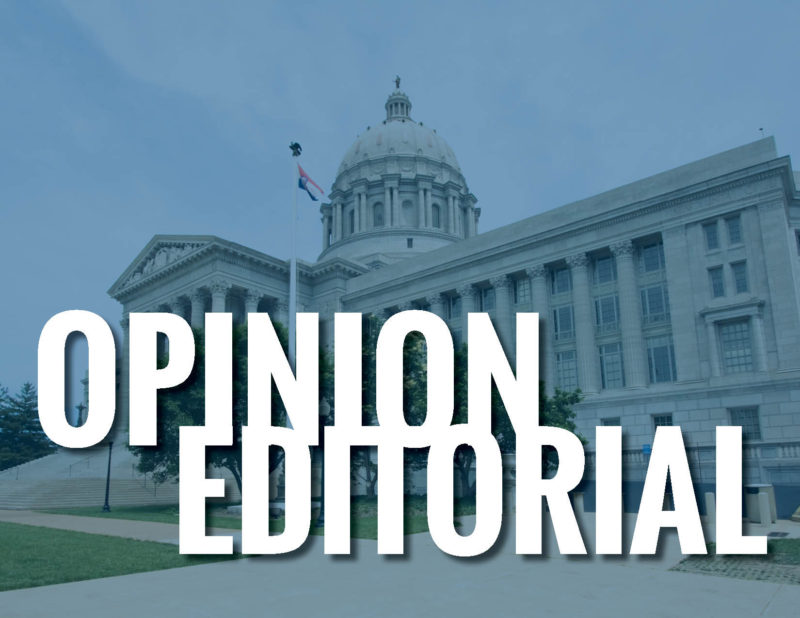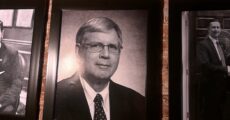By Charles Andy Arnold
While the Missouri Constitution, Article 3, Section 39 (9), contains a general prohibition against the General Assembly authorizing gambling on “lotteries or gift enterprises,” also known as “game of chance” or games of skill where consideration (money) is paid, it allows the legislature to authorize:
• Bingo Games operated by Missouri not-for-profits (Art. 3, Sec. 39a);
• Missouri State Lottery (Art. 3, Sec. 39b);
• Pari-Mutual Wagering on Horse Races (Art. 3, Sec. 39c);
• Riverboat Gaming (Art. 3, Sec. 39e); and,
• Raffles & Sweepstakes operated by religious and not-for-profits (Art. 3, Sec. 39f).
Currently, Bingo, Lottery, Riverboat Casinos, Raffles & Sweepstakes are operating in the state. Only Pari-mutual wagering on Horse Races is dormant because the law ties betting activity to live racing at a horse racetrack located in Missouri. While racing has been offered from time to time at the state fair, sustaining the activity has not been successful.
Bingo, authorized by voters in 1980 and Raffles & Sweepstakes, authorized by voters in 1998, are restricted to not-for profit service clubs and charitable and religious organizations. The Missouri State Lottery, authorized by voters in 1984, is governed by a constitutionally created 5-member commission. Riverboat casino gambling, authorized by voters in 1992, is governed by a statutorily created 5-member commission that also regulates bingo and horse racing. Commissioners for both commissions are appointed by the Governor with advice and consent of the Missouri Senate.
The Missouri Lottery
Traditionally, state lotteries have offered a variety of instant game scratcher tickets, pull-tabs, daily and bi-weekly numbers games sold at grocery and convenience stores or through dispensing machines. However, as technology evolves and the demand from players for new products begins to rise, lottery commissions around the nation are looking to electronic, video and smart phone technologies to deliver what players want and to remain a viable revenue source for their respective states.
Video lottery terminals (VLTs) capable of offering players multiple instant lottery game options were first introduced in the early 1990s in South Dakota and Louisiana and are currently in use in multiple states. These machines convert coins and cash into machine credits that are used to play instant lottery games. The player can cash-out at any time by printing a ticket or voucher that can be presented for payment at a redemption terminal.
Some compare this technology to slot machines used in casinos, but other than a slot in front that accepts coins or cash, the video screen and the randomizer used to generate game outcomes, the systems are different as VLTs are networked into a central computer system capable of turning the machines on or off, tracking every game play and all money in and out. This instant audit capability insures players get a fair game and the state gets an accurate accounting. Today’s VLT systems are not your run of the mill casino slot machine, nor should they be.
Legislation introduced in the Missouri legislature to authorize a statewide network of VLTs has been introduced for the last 2-years. The VLT system contemplated would be run by multiple private terminal operators licensed & regulated by the Missouri lottery. This system allows private operators to compete against one another, requires significant private investment and job creation, and generates an estimated $12K to $15K in annual tax revenues for Missouri education programs for each VLT deployed.
As introduced last session, VLT legislation limits the number of machines at any one location to 5-machines, requires video surveillance and direct line of sight of the cashier as well as placement requirements. The initial roll-out of the VLT system would take into consideration competition with other lottery products and minimize the impact on other authorized forms of gaming. Machine deployment is also limited to establishments with a state issued license to sell liquor.
As this proposal moves forward, policy makers will have to balance competition concerns of the state casinos against the ever-increasing demands for both higher-ed and elementary & secondary funding.
Riverboat Casino Gambling
When originally approved, Missouri’s riverboat gaming law was to be governed by the Missouri Tourism Commission as riverboat gambling was promoted during the 1992 election with commercials of historic paddle wheelers cruising up and down the states 2- great rivers. That quickly changed when the legislature created the Missouri Gaming Commission and allowed “boats in a moat”, essentially barges built-out as casino’s that float in a basin filled with river water no more than 2,000 feet from the rivers’ edge.
Riverboat casinos began operating in Missouri in early 1994 amid a legal snafu as the Missouri Supreme Court determined that the Missouri constitution only allowed bingo games or the state lottery to offer “lotteries and gift enterprises”- games of chance. Translation, no slot machines that make up approximately 65 percent of all casino revenues, only games of skill. The legislature quickly stepped in and put an initiative on the November 1994 ballot to authorize games of chance at casinos and Missouri voters overwhelmingly passed the measure.
When the casinos couldn’t get the legislature to remove the $500 lose-limit, they went to the ballot box again, and in 2008 voters approved a 1 percent increase in the gross receipts tax and a cap on casino operator licenses in exchange for the $500 loss limit removal. Now Missouri casinos are poised to go back to the legislature again, this time to remove the restriction in current law against wagering on sporting events.
When the US Supreme Court ruled earlier this year that the against state regulated wagering on sporting events in all states except Professional and Amateur Sports Protection Act (PASPA) passed by congress in 1992 was unconstitutional, the federal prohibition Nevada, Montana, Oregon and Delaware, was lifted.
States like New Jersey, the original plaintiff in the case with no statutory restrictions against wagering on sporting events, announced plans to regulate and tax sports betting at casinos and via their on-line gaming portal. Legislators from states like Missouri with prohibitions against sports betting will most certainly file legislation during the 2019 session to lift their states statutory restriction but the path may not be that easy.
A major sticking point will push-back from professional sports teams for a piece of the action in what they call an “integrity fee” that amounts to a 1 percent annual fee of the total amount wagered. Doesn’t sound like much, but 1 percent of an estimated $1.5 Billion Missouri market is estimated to be $15M annually.
An issue within the sports wagering issue will be the gross receipts tax rate. The current rate in Missouri is 21 percent with a portion of that going to the home dock city where the casino is located. Proposals floated during the 2018 Missouri legislative session pegged the rate between 6.25 percent and 12 percent, a significant drop in the rate producing an estimated $100M windfall for the 5-out-of-state casino operators licensed in run Missouri’s 13-casinos.
As this proposal moves forward, policy makers will have to balance the tax-break the casinos seek against profits and the integrity fee the professional sports teams seek against education funding needs.
Charles Andy Arnold is a veteran lobbyist with longstanding experience in state gambling policy.



